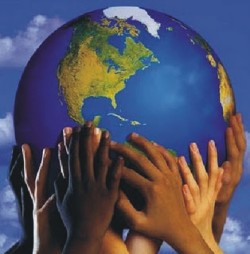For Your Information
'Multiculturalism' debate and European Muslim identity
Kazi Haque
 (…from previous issue)
(…from previous issue)
The timing of this speech can't be worse - politically, socially and economically. While the rift between militant Islam and western militarism is ever widening, such political maneuver will heavily come down on chances of reconciliation. There is heated debate in western media and intellectual circles over differences between Muslim and western lifestyles. Discrimination against ethno-racial minorities like immigrant Muslims is getting new low under ongoing economic recession. Cameron's speech tried to dispel some of those 'Islam versus west' stereotypes but that cannot right away remedy socio-cultural divide running deep in European societies. Morevoer, he refused to accept the roles of discrimination and deprivation in fuelling extremism.
Cameron's understanding of multiculturalism also seems to be a narrow one unlike the comprehensive definition from UNESCO. As per the latter, multiculturalism is a fusion in which cultures borrow from one another and creatively transform themselves instead of confining people into separate ethno-religious boxes. If multiculturalism actually unites rather than divides then the real problem lies with its practice rather than the idea itself. That is the suggestion from sources other than the centre-right establishments led by Cameron, Merkel and Sarkozy. Such alternative evidence indicate that the problem of European Muslim integration is not multiculturalism rather its lack thereof.
The practices of multiculturalism often turned into approaches of assimilation or segregation. The observations made by Gassan Khorani, a Danish immigrant from Palestine should be noted here: “The Danes think that integration means becoming fully Danish. Immigrants have to eat, drink and live just like the Danes. But those who come here think integration means earning some money, having their kids speak Danish and going to Danish schools. That's why there's a discord.”
Then such multiculturalism went simultaneously with discrimination and the latter undercut the former. In response to Angela Merkel's branding of multiculturalism as failure, immigrants in Germany argued that all their efforts to integrate into society are thwarted by discrimination. This is supported by recent survey findings of Freidrich Ebert Stiftung (FES), a German foundation. About one-third respondents felt that immigrants were coming to exploit the country's welfare system and should be sent home when jobs are scarce. They also felt that Germany was being overrun by foreigners. Such stigmatization, exclusion and domination are also not unfamiliar to Muslims in UK. Baroness Warsi, the co-chair of ruling Tory Party and the first Muslim woman to serve in British cabinet observed back in 2009 that anti-Muslim hatred had become Britain's last socially acceptable form of bigotry. She recently said that prejudice against Muslims has become socially acceptable in the country. Many Britons accept this as normal and uncontroversial.
Social stigmatization is reinforcing institutional discrimination and rendering identity crisis of European Muslims acute. They are often facing a trade-off between social-institutional inclusion and retaining cultural identity. In different European countries, Muslim women are forced not to wear headscarf or similar Islamic veil in the names of religious freedom, gender equality, secularism and anti-terrorism. In Germany, Anissa Feras, a German of Turkish origin cannot send her daughter to public schools since they do not allow learning Turkish and cultivating Islamic tradition. “To be honest, if there was a German school which would respect (my child's) religion, I wouldn't mind her going to that school,” she said. That is why Chair of UK's Equalities and Human Rights Commission Trevor Phillips' comments are pertinent here. He said in response to Cameron, “People (mostly) don't choose not to integrate. There are a few people on the edges who don't want to integrate with anybody else but most people, if they don't mix, it's because they don't have the choice.” The government therefore has to renew its battle against discrimination and ensure access to jobs for people of all backgrounds, he said.
The contemporary European Muslims (in Germany, UK, France and the rest) are already in their 2nd or 3rd generation. The identity of the younger generations is not those of their parents or grandparents. But their identity is also not similar to native Europeans who are white and faith wise catholic or protestant or secular. They are both Europeans and Muslims at the same time. These two identities are not conflicting and can go along together, a fact that is even acknowledged in Cameron's Munich speech. They shouldn't be (also can't be) forced to trade off between the two. They should rather be allowed to flourish as European Muslims under equal opportunities and non-discrimination in all spheres of life --- economic, social and political. And the only effective governance approach to that end is comprehensive adaptation of multiculturalism not its rejection or half-hearted application. (Ended)
The writer is senior researcher and faculty of BRAC University's Institute of Governance Studies (IGS).